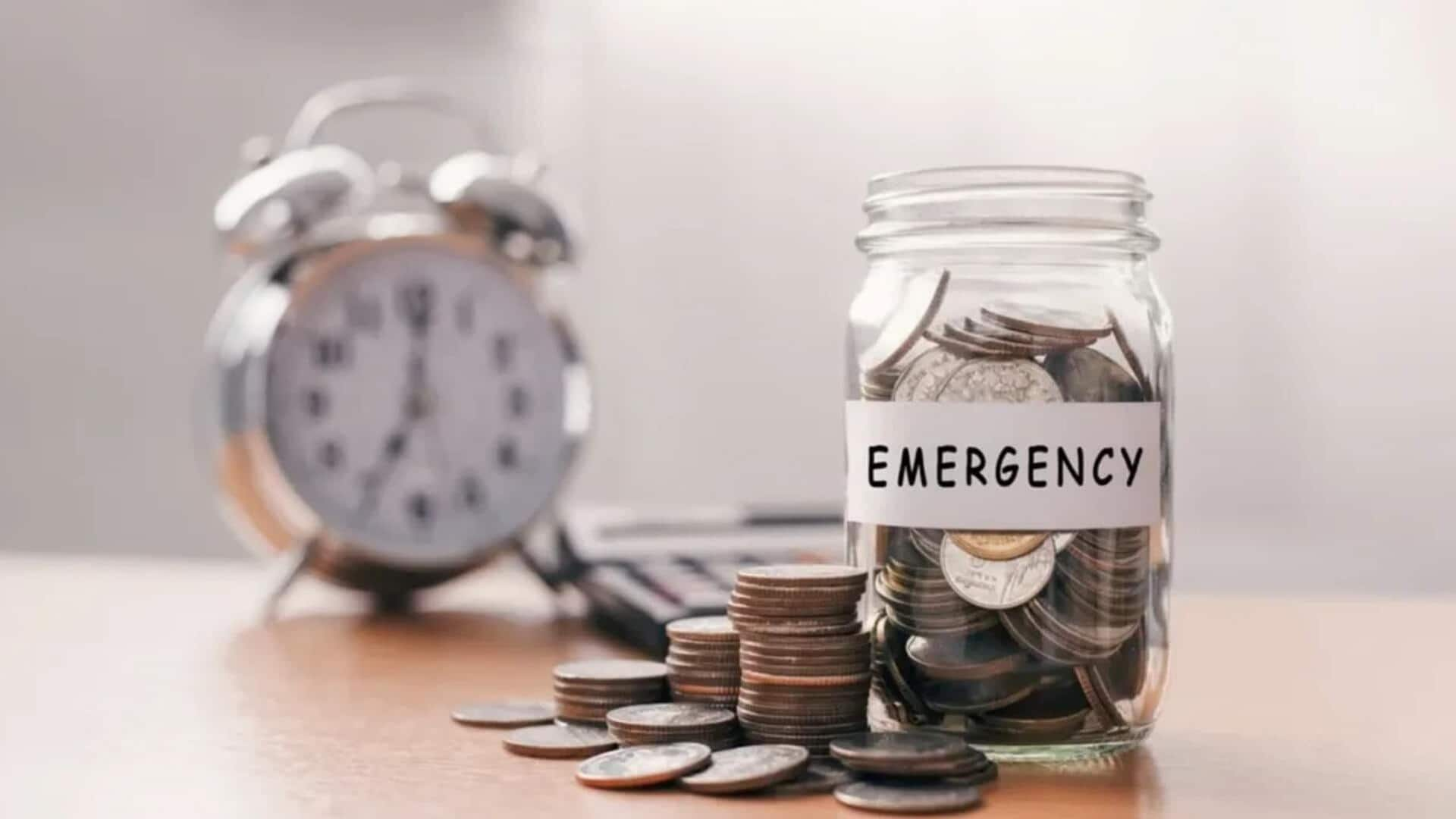How to build an emergency fund for financial security
What's the story
An emergency fund is essentially a financial safety net for unforeseen expenses.
It is essential for keeping your finances afloat during unexpected situations such as medical emergencies, car repair, or sudden unemployment.
Building and maintaining an emergency fund is a matter of strategic planning to make sure it serves your purpose when the unexpected strikes.
Here are some ways to optimize your emergency fund to the fullest.
Fund size
Determine the right amount
The right sum for your emergency fund depends on your lifestyle and monthly expenses.
A general rule of thumb is to save three to six months' worth of living expenses.
This ensures that you have a buffer that can help you pull through most emergencies without falling back on debt.
Automated savings
Automate your savings
Automating savings makes building an emergency fund that much easier.
By scheduling automatic monthly transfers from your checking to a savings account, you are guaranteed consistent contributions.
This way, you are less tempted to blow this money on non-emergencies, allowing your financial safety net to grow steadily without any additional effort on your part.
Account accessibility
Choose accessible accounts
Choosing the right account for your emergency fund is key. It's wise to go for accounts that provide easy access without any penalties.
High-yield savings accounts or money market accounts make for the ideal choice.
Not only do they provide you with the liquidity you need for immediate access, they also give you a chance to earn some interest on your savings.
Making them effective options for safeguarding your emergency funds.
Review contributions
Regularly review and adjust contributions
To ensure your emergency fund is a true reflection of your current finances, you must review and adjust your contributions regularly.
This should be done every six months or after major life events, like when you land a new job or witness a rise in living costs.
Such periodic reviews help you maintain an emergency fund that falls short of covering unexpected expenses, keeping you prepared for any financial downturns.
Fund usage
Avoid using funds unnecessarily
Most importantly, always reserve your emergency funds for true emergencies only.
This means, don't use these funds for non-essential purchases or expenses that you've planned, like vacations, home renovations, etc. These should have separate budgets, funded from regular income sources.
Such discipline ensures your emergency fund stays intact and ready for real financial crises, safeguarding your financial stability.
